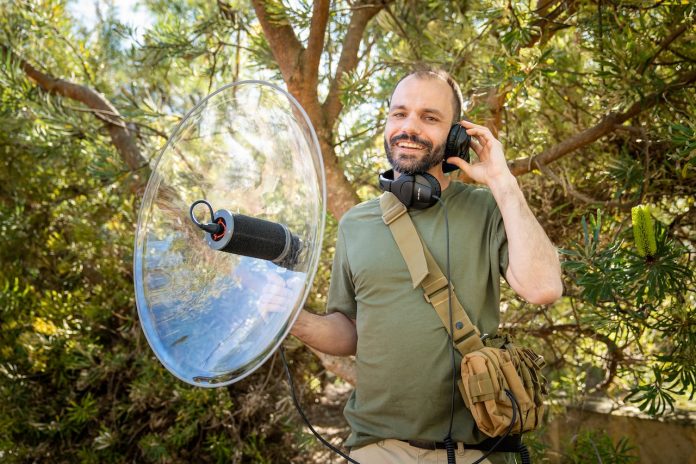Living in Australia, we sometimes take the sounds of nature around us for granted. However, many studies have shown that listening to birds, frogs and the ocean connects us to our natural environment and is beneficial to our well-being and good mental health.
For Western Australian Academy of Performing Arts PhD candidate, Jean-Michel Maujean capturing birdsong is the focus of an engaging new music study at Edith Cowan University connecting art, science and nature that will take Maujean on a six-month off-the-grid project to record and study native Western Australian birds as part of an engaging new music project.
Maujean, who has a degree in Composition and Music Technology from WAAPA, says the birds will be the composers and stars, celebrating some of the rich repertoire on offer in our state. The birdsong will be accompanied by a selection of self-made instruments.
“The title of my PhD subject is Composing with Western Australian Birdsong and I am writing a suite of works. In each one the bird will play and act like a melody with my instruments complementing what the bird is doing.
“I have developed some instruments and a musical tuning system. It seemed fitting to include birdsong in that process as a way of tying it all together.
“I would like to hear suggestions from people regarding the type of bird they would recommend. If someone really likes the sound of a bird, please suggest it and I might go and survey it. While I have been in touch with a number of associations including the Goldfields Naturalist Society, it would be good to hear from other groups and individuals.
“I hope that my research will help provide a greater awareness of our own backyard and the abundance of nature that is on offer. I also hope it helps people engage with the environment and focus on how rich and beautiful it is, encouraging them to take more of an interest when they are outdoors or walking in the bush,” he said.
Maujean has been inspired by noted violinist, composer and ornithologist, Hollis Taylor, a senior research fellow at Macquarie University who he has worked and studied with in the past. Taylor has among many other works recorded the Pied Butcherbird accompanied by violin.
At this stage, his preliminary field trips and some of his recordings will be based on the Western Gerygone, the Pied Butcherbird, the Australian Magpie, the Grey Shrike-Thrush, the Western Whistler and the endangered Noisy Scrub-bird, which is only found near Albany.
Speaking to Have a Go News from Denmark, in Western Australia’s south coast on a field trip connected to the Noisy Scrub-bird, Maujean said he will embark on what he predicts will be about six months on and off the road travelling to places including the Fitzgerald River, the Great Western Woodlands, areas around Kalgoorlie and eventually Mt Magnet in the Pilbara region.
Armed with a sophisticated sound recording system and a four-wheel drive vehicle with solar panels, Maujean predicts he will be able to stay off the grid for up to two weeks at a time allowing him to fully immerse himself into the natural habitat of his feathered subjects.
“Being able to stay in one place for a period of time will lend itself to better recordings because the birds will not see me as a threat,” he added.
Maujean says Australian songbirds are distinctive and tend to be noisier, aggressive and more intelligent than birds found anywhere else in the world.
“The relative isolation of Australia along with an abundance of nectar has contributed to great diversity in Australian songbirds,” he said.
His self-made instruments including a PVC cello, 3D printed flutes and a simple-to-use scoring technique that will accompany the birdsong and make it possible for audiences to follow along and play at the same time.
Maujean is also keen to hear people’s stories about nature and birdsong and would welcome input and perhaps collaboration from members of the community heading towards production and a recital in the future.
If you or your organisation or society would like to contribute insights, suggestions or comments on this project with the view of adding to his research, Maujean can be contacted by email at jmaujean@ecu.edu.au.



































